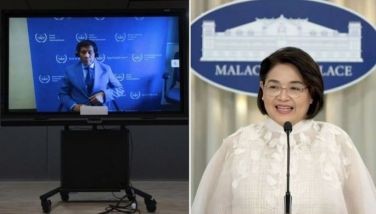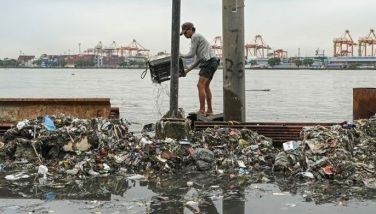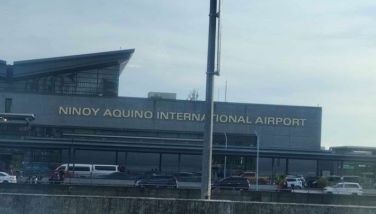Lorenzana: Marawi showed AFP 'woefully inadequate' vs terror
MANILA, Philippines — Defense Secretary Delfin Lorenzana admitted on Wednesday that the Marawi crisis had shown how "woefully inadequate" the Philippine military is in fighting terrorism.
Lorenzana said that the five-month battle for Marawi City was an eye-opener for the Armed Forces, which had been in denial mode despite warnings that religious extremism was threatening to spread in the region.
"Marawi is an eye-opener for all of us. Marawi showed us, the Defense department, how woefully inadequate our capability is for this kind of problem," Lorenzana said during his keynote address at the "ASEAN Leadership Amid a New World Order" forum in Shangri-la Makati.
He said that countries in the Middle East where the so-called Islamic State has a presence warned the Philippines that the group was egging its fighters to return to their home countries in Southeast Asia as the terror organization was facing imminent defeat in Syria and Iraq.
"They have been giving us some names of the fighters who are there, and we are anxious to find out if they were able to get home," the Defense chief said.
Lorenzana also thanked foreign countries such as the US, Australia, China and Russia for their help and support in defeating militants in Marawi City who had occupied a significant area in the lakeside provincial capital's center, much of which is now in ruins.
READ: US to donate more planes, weapons to Phl
The United States gave the Philippines the use of military planes and hardware at the height of the battle. Washington also provided the AFP vital intelligence that helped the troops defeat the militants.
Australia meanwhile lent its surveillance planes to determine the location of the militant fighters.
China and Russia both provided military hardware, and Beijing recently donated construction equipment to help the country rebuild and rehabilitate the Islamic city.
READ: US provides P730-M aid for Marawi rehab
Trilateral efforts
Lorenzana said that the security and piracy problems in the region has led the Philippines, Indonesia and Malaysia to sign trilateral marine and air patrols in an effort to improve cooperation and defense in their common borders.
"We have also pursued trilateral cooperation with our immediate neighbors to address challenges in our maritime areas of common concern," he said.
"My counterparts from Indonesia and Malaysia and I are unanimous in our view that our trilateral cooperation complements ASEAN's overall efforts for security while allowing us to address issues that directly affect us," he added.
According to Lorenzana, it is not true that state-centric concepts of security have become irrelevant and that traditional security challenges have been replaced by non-traditional security concerns and non-state actors.
He urged the countries in the region to enhance cooperation, alliances and partnerships as their defense establishments were still facing traditional and non-traditional challenges.
A faction of the bandit group Abu Sayyaf and the Maute Group tried to establish the so-called Islamic State's province in the country's only Islamic city on May 23.
Ferocious gunfight arising from a failed attempt to arrest Isnilon Hapilon, the emir of the so-called IS in the region, by the military prompted President Rodrigo Duterte to place entire Mindanao under martial law.
The fighting lasted for five months despite relentless air and ground assaults by the military that left the city's center charred and decimated.
The crisis in Marawi has pushed terrorism and extremism into the spotlight as regional leaders meet for the Asia Pacific Economic Cooperation in Vietnam and the Association of Southeast Asian Nations in Manila next week.
- Latest
- Trending
































